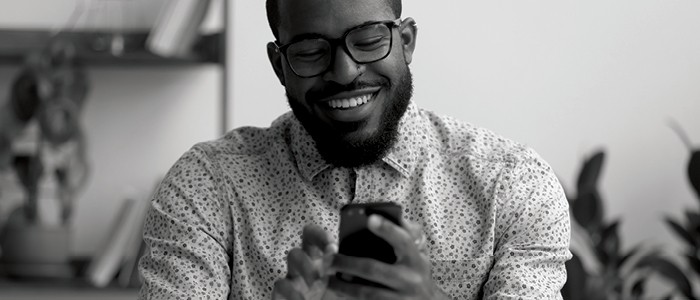- WHAT WE DO
Additional Services

- Industries

Case Study: Multilingual Retail Marketing
New AI Content Creation Solutions for a Sports and Apparel Giant

- RESOURCES

- WHO WE ARE

What We Do Home
Generative AI
- AI Translation Services
- Content Remix
AI Training
- Aurora AI Studio™
Machine Translation
- MT Tracker
Instant Interpreter
Smart Onboarding
Translation Service Models
Content Services
- Technical Writing
- Training & eLearning
- Financial Reports
- Digital Marketing
- SEO & Content Optimization
Translation Services
- Video Localization
- Software Localization
- Website Localization
- Translation for Regulated Companies
- Interpretation
- Instant Interpreter
- Live Events
- Language Quality Services
Testing Services
- Functional QA & Testing
- Compatibility Testing
- Interoperability Testing
- Performance Testing
- Accessibility Testing
- UX/CX Testing
Industries Home
Life Sciences Translations
- Pharmaceutical Translations
- Clinical Trial Translations
- Regulatory Translations
- Post-Approval Translations
- Corporate Pharma Translations
- Medical Device Language Services
- Validation and Clinical
- Regulatory Translations
- Post-Authorization Translations
- Corporate Medical Device Translations
Banking & Finance
Retail
Luxury
E-Commerce
Games
Automotive
Consumer Packaged Goods
Technology
Industrial Manufacturing
Legal Services
Travel & Hospitality
Insights
- Blog Posts
- Case Studies
- Whitepapers
- Solution Briefs
- Infographics
- eBooks
- Videos
Webinars
Lionbridge Knowledge Hubs
- Positive Patient Outcomes
- Modern Clinical Trial Solutions
- Patient Engagement
- AI Thought Leadership
SELECT LANGUAGE:
This is the third piece in our new Patient Engagement series, where Lionbridge Life Sciences experts discuss the history and current status of participants in clinical studies and patients in the healthcare system. Come back every week for more from our team and get in touch if you have ideas of your own to share.
uMotif is a mobile platform that helps patients track symptoms and connect with researchers looking to study those participants. CEO Bruce Hellman spoke with Dan Herron recently about how uMotif's people-first mentality leads to better outcomes for patients and study sponsors alike.
Dan: How did uMotif begin?
Bruce: My cofounder and I had some ideas in 2012 to help people track their health and wellbeing by using mobile apps to capture data on a daily basis. We put together initial thoughts on how this could be done and showed our ideas to two patients with Parkinson's disease. They thought the concepts would be fantastic for them to help track, understand, and manage their long-term condition.
When we founded uMotif it was originally working with those patients to solve their problem, of how to track data about their health conditions.
"So right from the start, it was about filling the need of helping patients and giving people a better healthcare journey by capturing data."
Initially this was only patient focused. Then patients told us that they wanted to share their data with their doctors, so we built out a clinician-facing web portal. For five years or so we worked in the healthcare space. It is only more recently, in the last few years, that we realized we could also have a huge impact in capturing data for research purposes.
D: How have you made the transition into the study and trial space?
B: Four years ago, we took all of the experience from the first few years of working directly with patients and doctors and pivoted to research. Now we're focused 100 percent on engaging patients to capture data for research studies. The key thing is delivering a great experience for patients, healthcare professionals, site professionals and other stakeholders involved.
D: Your design is very colorful and playful. How did you end up using those graphics?
B: Right from the start we've always paid a lot of attention to what people find engaging, inspiring, and simple to use.
We take inspiration from what big companies--Facebook, Tiktok, Instagram--do to make something delightful and create an enjoyable experience. We use that consumer level design information and marry that with the requirements of the research industry, where clearly you have to capture things in a completely robust and validated manner.
"As we bring those components together we can both improve the experience for patients and also capture large volumes of high quality data."
In our platform now, you have a mixture of different modalities and data entry features or widgets that can help people capture their data. That includes both the validated data for clinical trials and more exploratory data as well.
D: What sort of studies has uMotif made possible?
B: We've supported what you might call more traditional site-based studies all the way through to supporting very large-scale decentralized or virtual trials.
At the larger end was a 13,000 patient participant study where we captured the weather and people's experiences with their chronic pain. A correlation was found between weather and symptoms of pain which was published in Nature last year. That study engaged thousands of people using their own device and capturing huge volumes of data.
At the other end of the spectrum we powered a smaller clinical phase trial that provisioned a device to each patient for them to capture data.
D: How has COVID-19 changed demand for the uMotif team?
B: COVID-19 has catalyzed a general trend in the industry to more decentralized approaches where trials aren't relying solely on people going into hospital sites. Now people can be recruited, consented, and submitting data all from the comfort of their own home. All of this is possible without going into large academic medical centers.
COVID has accelerated a shift to more virtual trials that we were seeing anyway. It’s exciting because taking a more decentralized approach builds in more resilience, opens up trials to more people, and helps further engage the patients taking part.
The one big takeaway I think coming out of this--and this is true of any industry or sector--is that it isn't technology that is the key driver for success. It’s how that technology is used and designed for use by people.
Taking a user-centric or person-centric perspective is key. It's always essential to focus first on how the technology serves the people involved.

D: What countries and languages are you working in? What are your plans for expansion?
B: We've deployed in approximately 30 countries. Language shouldn’t be a barrier to taking the trial to new populations; we have versions in the main European languages as well as character-based languages.
Studies are continually becoming global. We built the platform so it can be translated and new languages can be smoothly uploaded and kept up-to-date during the study.
D: What chances have you seen in the space as uMotif has grown? What would you like to see?
There have been a few changes. First, there’s more acceptance of technology generally.
"There’s definitely a shift and realization that paper-based data capture is not sufficient for any sort of research study."
It's error prone and it can be quite difficult for the people to fill that data in and capture the data at the right time.
Digital provides a much higher quality experience, as well as higher quality data that is immediately available.
Another shift is a realization that people of all ages are able to use technology. Maybe six or seven years ago we commonly had the question “What about older people being able to use the technology?”
That debate just does not come up anymore. We have people in their 80s and 90s able to use the technology.
There are plenty of other debates coming up around, for example, the increasing adoption of bring-your-own-device (BYOD) as an option in studies.
We don't think clinical trials will go fully BYOD—you'll likely always want to have some provision devices as back up--but a hybrus model seems to us the obvious future.
It gives patients more choice. It reduces the cognitive difficulty of learning a new device. And it can bring reduce costs for the trial sponsor as well, so i think we'll see a big shift to BYOD.
The biggest thing I'd like to see, though, is the embracing of a patient and human-centered approach to the adoption of new technology and new services. We should start with the people and design the use of solutions, services, and technologies around the people involved and the quality of data required from the study. That's the way to make sure we meet the needs of the study and tick all the right regulatory and quality boxes. It’s also how we deliver a much more engaging and low burden experience.

D: What’s your vision for uMotif’s future?
B: The clear and obvious future that we should be aiming towards is one where patients have a better trial experience, where they have a seamless journey with different solutions, different technologies, different services accessible through one experience. That's what we want to provide to patients, whether they're taking part in a clinical trial, a real-world study, an observational study, a registry, or any type of research.
We want to be able to give that patient a great journey, to help them feel like a participant not just a subject. We want to help them feel valued and engaged in that experience. And for healthcare professionals at sites, we want to give them a better experience working in research.
If we can provide great technology designed for people, we'll have a far greater impact on the future of the industry.




